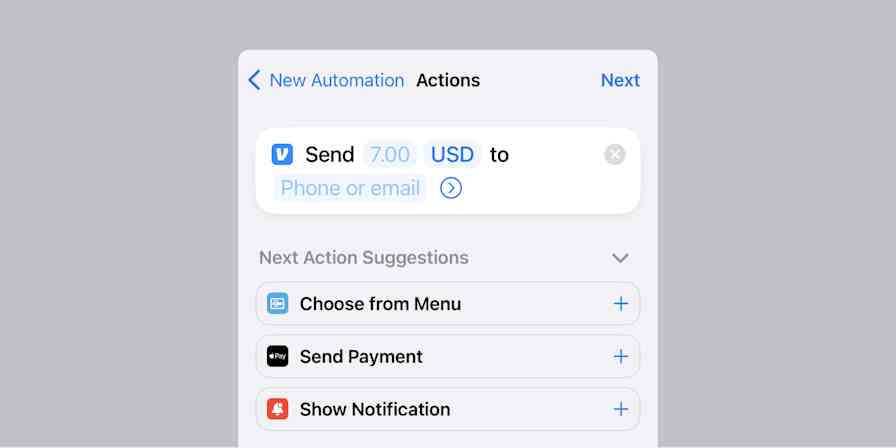"Don't worry about titles. Titles don't really matter."
I can't tell you how many times I've heard that before.
When I first entered the startup world, I thought my opinion that titles do matter was my own ego speaking. Maybe I just wanted to look good and tout my fancy title like a badge of honor: "Look, Mom! Look what I got!"
But I quickly realized my ego wasn't really the factor. The fact of the matter was that I was putting in work beyond my title, and the work I was doing actually fit into another title completely.
Now, if you work for a large company, there's probably a pretty structured career growth framework that follows the appropriate standards of job titling. But at a startup, that's almost definitely not going to exist. That means you need to do something about it.
Why titles matter
Let's get to the main point here: titles matter.
Say you're a Social Media Coordinator. You engage with your company's audience via various social media channels, and you plan and publish consistent posts. Now, as every good startup job goes, you start wearing more hats. Soon you find yourself working on broader marketing strategies, helping with copy as needs arise, contributing to broader communications tasks, and more.
Does the title of Social Media Coordinator still fit? Not really. And that matters.
For one, according to Glassdoor, the national average salary of a Social Media Coordinator is about $43,000, but you're now filling the role of a Marketing Specialist, which is on average about $62,000. So you're being dramatically underpaid.
But let's take it a step further and say you're ready to move on from your current company. You revamp your resume and LinkedIn and highlight everything you did as a Social Media Coordinator. You read job descriptions at various companies and notice that your experience closely aligns with Marketing Specialist roles. So you begin to apply to those—and you don't get any interviews.
The problem could lie in your current title. If recruiters or business owners are getting enough applications, they might only have time to scan your application and resume. They're likely to notice the titles that closely match what they're looking for. So, even if you've done the work of a Marketing Specialist, your Social Media Coordinator title is what's sticking out to them.
It's also important to note that hiring managers love to see growth over the years, and even if your responsibilities shifted, it can get lost if it's all under one title.
How to figure out the right title
If you're getting the feeling that what you're consistently working on has moved beyond your title, it may be time to do some digging.
Start by researching different roles in your industry and field. As you do that, take notes:
What job titles come up a lot? Having a job title that's "familiar" to recruiters can be a big help in a job search.
What are the different levels of job titles (e.g., associate, assistant, senior)? You might even want to make a little org chart for yourself to understand where you fall among these levels.
What responsibilities in these descriptions match your current role? Which titles most closely represent what you're doing?
You should do all this with a forward-thinking mindset. Do you see any job titles that look like what you want to do, even if it's not what you do now? If so, you can work backward from there: figure out what the level below that is, or find people in that role and see what their previous title was. (A quick LinkedIn snoop should do the trick.) That will help you title yourself to be successful in your next career step.
Oh, one thing to be careful of: "unique" titles. You'll see job posts for things like "Marketing Guru" or "Happiness Maker" or something. Just skip those—they're too vague and don't map to anything that will help you down the line.
How to ask for a title change
If you work somewhere that's so startup-y that your title isn't actually recorded anywhere (i.e., you don't have HR or payroll software that stores your job information), you might just be able to change your title on LinkedIn and call it a day. But otherwise, you need to ask for a title change.
I don't know if these conversations ever get easier. They always feel a little awkward, and having to advocate for yourself and your career can be uncomfortable (even if that's not how it should be).
Once you've done your research, made your notes, and come up with a proposal for a new title, set up a meeting with your manager—face-to-face or at least Zoom face-to-Zoom face. Here's your agenda:
Let them know you want to talk about your career growth and specifically your title.
Tell them how much you've enjoyed being the Social Media Coordinator and how much you've learned and grown.
Mention the responsibilities you held at the beginning and how they've shifted, and talk about what responsibilities you hold now.
Segue into the research you did, and mention how important your growth is to you.
Talk about how your current role and responsibilities translate well into the Marketing Specialist position, and ask if making this change would be something that could be considered.
Reassure them that this is a forward-thinking request, and that you're not actively looking for other job opportunities (assuming that's actually the case).
Let them know that you don't expect a decision immediately, and that you'll send over a copy of your notes and research. You want to give them time to be sure the title is aligned with the company's goals and growth as well. (And when they do give you the new title, you'll know it was a well-thought-out decision.)
These suggestions come from experience. When I realized that the work I was doing actually fit into another title completely, I did the research and I had the tough conversation with company leadership. It wasn't easy—not because they thought I was unworthy of the title, but because they didn't understand why it mattered and if it was worth the hassle to get it updated.
I powered through, had several conversations about it, and finally got that title change. It also paved the way for other people at the company to have similar conversations—and, of course, it helped me grow in my career.
Get the right title
Titles aren't arbitrary. People who tell you they are probably have fancy titles of their own.
Titles show off years of growth and hard work and have the ability to steer your career in the right direction. They're tied to compensation, they outline the steps that lie ahead, and they make you more (or less) attractive as you search for jobs.
I think that eventually, employees won't have to consistently advocate for this kind of deserved recognition. But until then, it's important to remember that your title matters—and do something about it.





